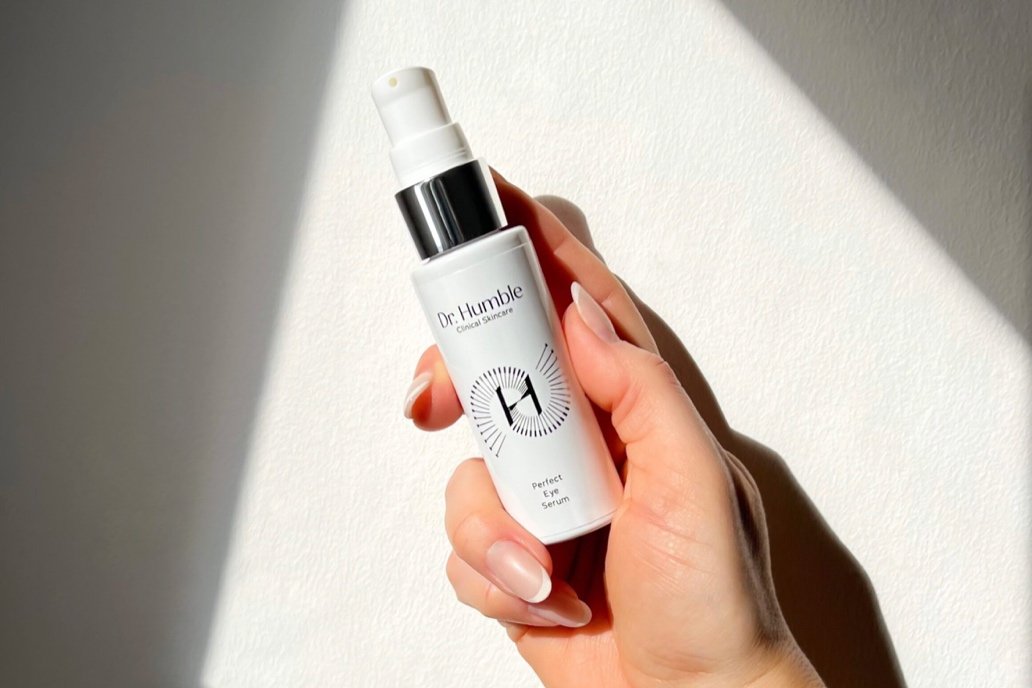Your Skincare Decoded
With their endless list of scary looking ingredients (I don’t know about you but the word ‘acid’ sounds pretty terrifying to me!), attempting to decode our skincare can take us right back to being 16 years old, sat in a GCSE chemistry exam.
But, just as learning the periodic table makes chemistry class a whole lot easier, getting down with some basic skincare jargon can make decoding the latest serum a breeze.
From knowing the difference between a chemical and physical sunscreen to the hero ingredients you should be looking out for, I’ve created the ultimate guide to decoding your skincare.
THE KEY TO READING INGREDIENTS
The main thing to remember when decoding the ingredients in your skincare is that they are usually listed in descending order with the largest volume of product listed first. So, if you’re checking for a product’s core-listed ingredient and you see it listed at the bottom, then there’s probably not very much of it in there.
As always, there are exceptions to the rule. They’re a few potent ingredients, such a Retinol, where only 0.5 to 1% needs to be present. In this case, you might see them listed at the bottom of the ingredient list.
UNDERSTANDING EXPIRATION
We often forget that skincare, just like food, has an expiration date. To find out how long a product will last after opening, look for a number followed by the letter ‘M’. For example, if a product has ‘12M’ listed, then it will only last twelve months after opening.
Beauty oils are hot property right now, but it’s worth noting that they can oxidise quicker and stop working sooner than your standard anti-ageing cream. To get the most out of your oil, try to go for ‘cold pressed’ oils since these have a longer shelf life.
TESTED DOESN’T MEAN THE SAME AS ENDORSED
Don’t be fooled by marketing ploys. Beauty brands often like to uses phrases such as ‘dermatologist tested’, but it’s important to remember that ‘tested’ isn’t the same as ‘endorsed’ and doesn’t mean a dermatologist has recommended it.
NATURAL, ORGANIC, AND CERTIFIED ORGANIC
The difference between Natural, Organic and Certified Organic skincare can be a confusing one. Here are the main things to keep in mind when deciding between products.
‘Natural’ beauty products contain ingredients sourced from nature rather than created synthetically. Unless stated on the packaging, ‘natural’ products are not organic.
When a product is labelled as ‘organic’, what it really means is that it contains 70% organic ingredients.
You can only be sure that a product is 100% organic if it holds the ‘Certified Organic’ label.
CHEMICAL OR PHYSICAL
When choosing sunscreen, don’t only look at the SPF. Chemical and physical sunscreens work in two very different ways. While chemical sunscreens use ingredients that absorb UV rays, physical sunblock acts as a barrier to reflect UV rays. There is some controversy surrounding chemical sunscreens and whether they act as a hormone disrupter, so if in doubt, just go for the physical sunscreen - your hormones might thank you.
THE HERO INGREDIENTS
With new superstar ingredients popping up on what seems like a weekly basis, it can be hard to know what to spend your money on. To ease the confusion, we’ve listed five tried-and-tested ‘hero’ ingredients that we know produce results.
Alpha Hydroxy Acids (AHA) & Beta Hydroxy Acids (BHA). AHAs, most commonly seen as glycolic or lactic acid, are natural exfoliating acids derived from fruit or milk known for their superb ability to encourage cell renewal. While BHA, aka salicylic acid, works at a deeper lever to exfoliate and unclog pores. We can’t get enough of Peter Thomas Roth’s Beta Hydroxy Acid 2% Acne Wash (£24.95) ideal for those with acne or oily skin.
Peptides. Peptides are seen everywhere these day, thanks to there powerful ability to stimulate collagen production and improve skin elasticity. Korean brand Mizon hits the peptide spot with their cult Water Max Full Rich Firming Gel (£25), well worth a try if your want to firm slackened skin or improve volume.
Retinol. Looking to target wrinkles, Retinol is your man (or woman). Also seen as Vitamin A, it effectively fights ageing by increasing cell turnover, reducing pore size, diminishing dark circles and repairing the effects of sun damage. Why not let your skincare do the hard while you sleep with Advance Retinol Night Treatment (£85) by Strivectin.
Hyaluronic Acid. Want to know what makes a baby’s skin so plump and gorgeous? You got it, it’s hyaluronic acid! A natural component found in our connective tissue, it holds up to 1,000 times its weight in water, leaving skin plumped and wrinkles diminished. For an instant boost of this miracle molecule we love Dragon's Blood Hyaluronic Mask (£39) by Rodial.
Vitamin C. Vitamin C really is a hero of skincare. An essential antioxidant, it stimulates the production of collagen, improves the appearance of dark spots and protects the skin from environmental elements such as sun damage and pollution. For your ultimate dose of the good stuff, look no further than SkinCeuticals’ C E Ferulic (£129).

























Embrace the transformative wonders of facial massage—unlock the secrets to radiant skin and holistic well-being in our expert guide.